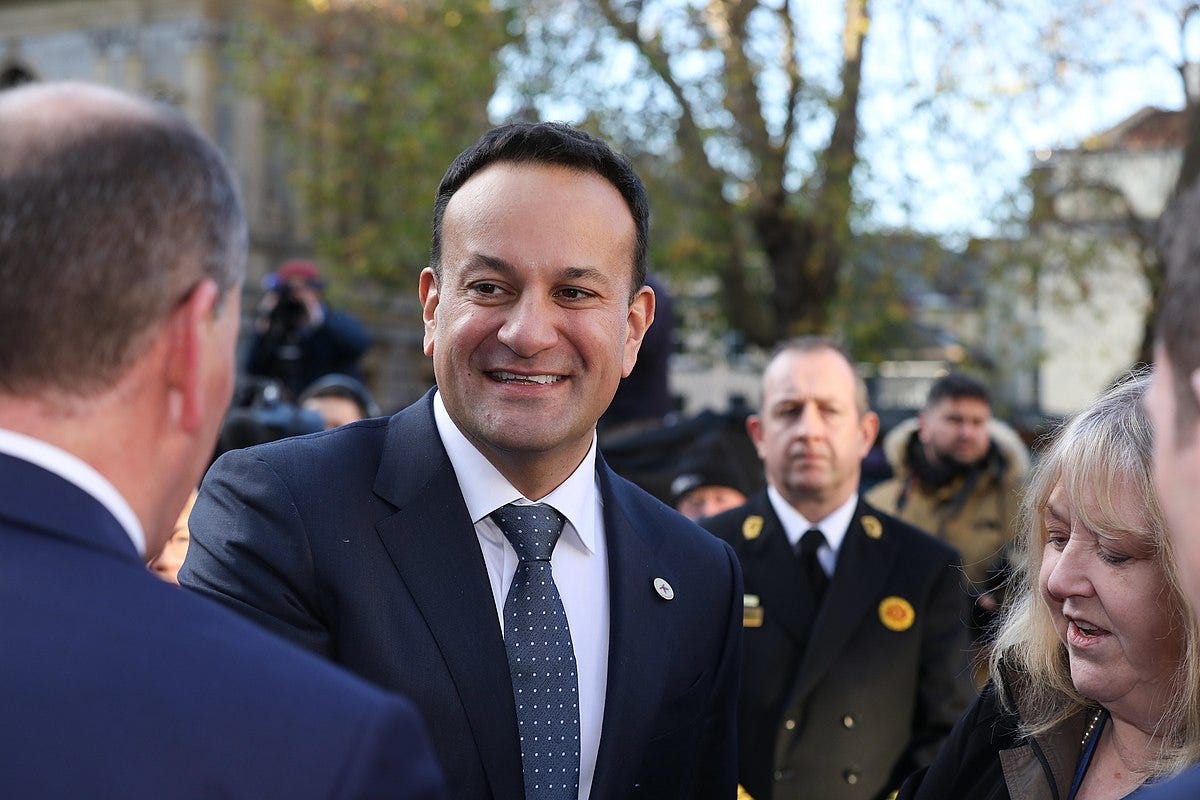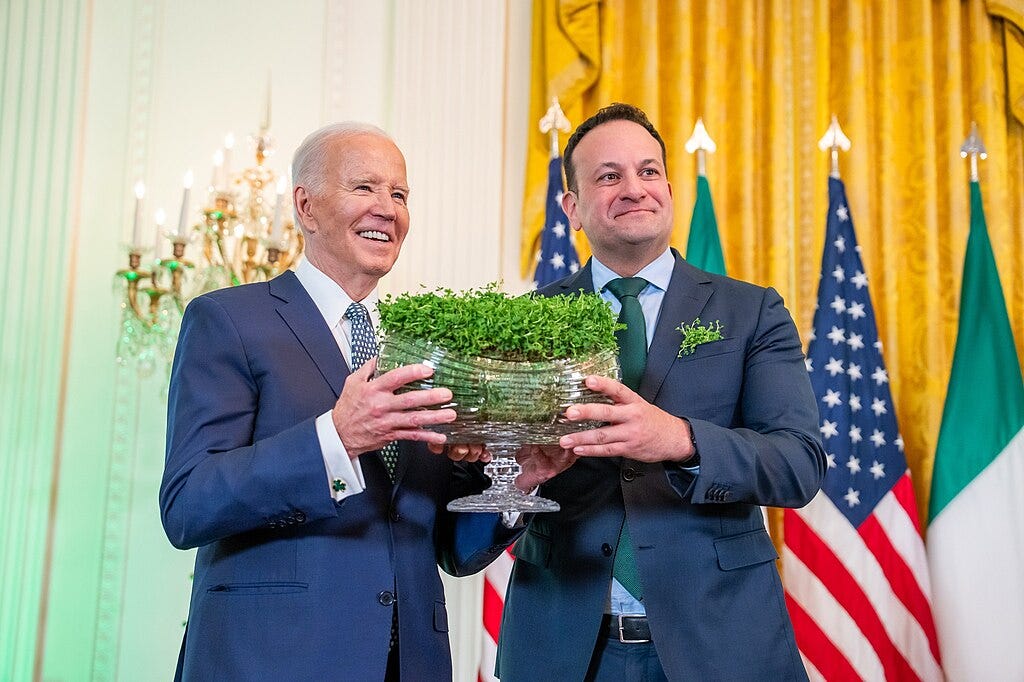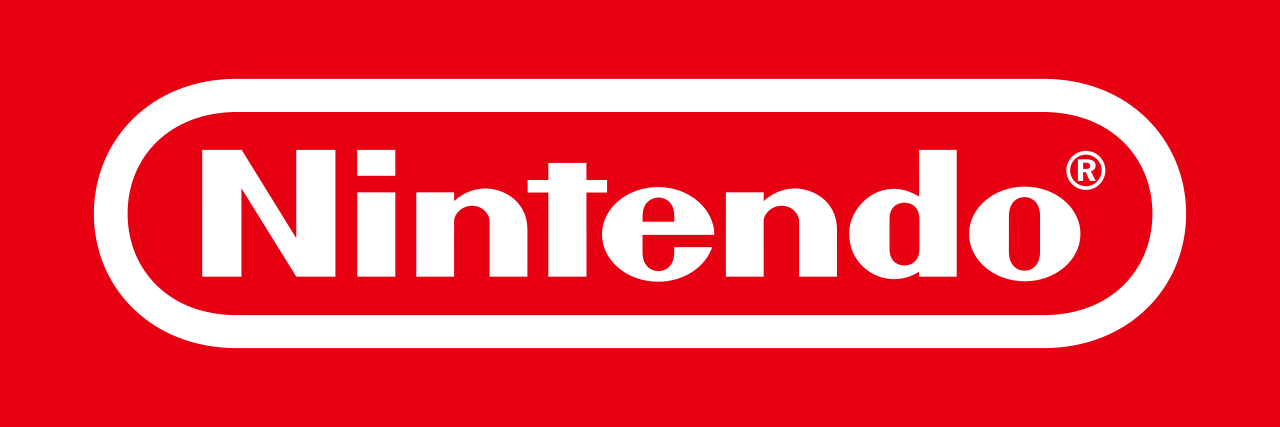How do you make a head of state care about video games policy?, 16/01/2025
Leo Varadkar, former Irish PM, stops by to share his thoughts
This week’s Video Games Industry Memo is sponsored by Modulate
Modulate's ToxMod voice moderation platform protects players, improves engagement, and increases retention
Leo Varadkar, former Irish Prime Minister, shares a head of state’s view on video games policy
Nintendo Switch 2 set for imminent announcement, according to everybody
Donkey Kong Country Returns HD climbs to the top of the week’s releases
| Find me on Linkedin | Follow me on Bluesky | Pre-order my book | Email me |
Hello VGIM-ers,
Happy Nintendo Switch 2 announcement week to those who celebrate it. I’ve got a few quick updates for you before we go into an intriguing Big Read that is very much not about the Big N’s console plans.
I made another couple of appearances in the media last week because my appetite for self-promotion is voracious. Check out some of my predictions for the games industry over at The i and listen to me natter about games with Steffan Powell on BBC Radio 5Live here.
For those who like to see me self-promote in person, I am at Pocket Gamer Connects on Monday where I’ll be hosting a panel about Direct-To-Consumer strategies for mobile games businesses. It will be 40 minutes of white-hot exhilarating panel action, I promise.
And finally, the first VGIM Insider newsletter of the year hits inboxes tomorrow and will likely diverge from usual Ask George programming to talk about the Nintendo Switch 2 (provided it is unveiled as expected). Read it in full tomorrow by nabbing a discounted Insider membership for just £40 a year here.
And with that done, it’s time for something completely different.
The big read - How do you make a head of state care about video games policy?
We know that the people who lead the world are well aware of the existence of video games.
Former UK Prime Minister and noted short trouser wearer Rishi Sunak told the Jimmy’s Jobs Podcast that he grew up playing video games.
Mohammed bin Salman, The Crown Prince of Saudi Arabia, was allegedly repeatedly told off for playing too much Age of Empires when he was a teenager, according to Bradley Hope and Justin Scheck’s excellent book Blood & Oil.
Even Angela Merkel dabbled with interactive entertainment, as evidenced by her gamely checking out gamescom during her time as Germany’s finest post war Chancellor.
But what does a head of state think when a video games policy matter lands in their political in-tray? Does someone on the cutting edge of domestic and international politics have time to care about games? And what can the industry do to make the most of their potentially limited attention spans?
Leo Varadkar was Taoiseach (Prime Minister) of Ireland two times from June 2017 to June 2020 and December 2022 to April 2024. He also served as Minister of Enterprise, Trade and Employment in the gap between his two stints at the top, as part of a power sharing deal between Fine Gael (the party he led) and Fianna Fáil (the country’s centre right party).
I was fortunate enough to sit down with him in December 2024 shortly after he left politics to ask how much a leader of the free world truly cares about games policy.
And while he was blunt about the relatively low status of the medium in his particular political pecking order, he also offered up plenty of useful insights on how the industry can make the most of its brief moments in the political spotlight.
Gaming the policy agenda
It’s fair to say that Leo Varadkar was kind of a big deal in Irish politics. On a personal level, Varadkar recorded a number of firsts in the history of the country.
He was the youngest person to be elected Prime Minister of Ireland. He was the first leader of the country to come from an ethnic minority background. He was also the country’s first openly gay leader, making him only the fifth such leader in the history of global politics.
And at a policy level, he was responsible for a number of major achievements including steering Ireland through the Brexit negotiations, winning the country’s 2018 referendum to legalise abortion and playing a key role in handling the country’s response to the Covid-19 pandemic.
So it perhaps wasn’t entirely surprising that when I asked him about how much time in office he spent thinking about video games policy, the answer was, erm, barely ever.
“If I take 13 years in Government and seven years as Prime Minister and Deputy Prime Minister, it [video games policy] was never the most important thing I did in any week - or any day - during that period,” he told me.
Ouch.
Yet despite his forthright view on the political importance of interactive entertainment, as well as his open admission that he knows relatively little about games or the industry, his administration passed one of the most significant policies in the history of the Irish sector.
In December 2022, the country introduced its first Digital Games Tax Credit. It allows Irish developers to claim up to 32% tax relief on qualifying development costs accrued in the country, provided that they pass a cultural test in line with EU State Aid rules.
So how did Ireland’s games sector secure such a win when the leader of the country was barely thinking about them?
The answer is that it cleverly packaged the credit up as a little effort, low cost, easy win with a lot of potential upside for the country - a perfect policy sell for a time poor political leader.
A word from our sponsor Modulate: Discover how Trass Games enhanced player safety in Yeeps: Hide and Seek with ToxMod's powerful AI-driven voice moderation from Modulate. Within weeks, ToxMod achieved a 96% detection accuracy, identifying 4x more toxic incidents than human moderators alone. Read the full success story and learn how ToxMod can transform your game community here.
(Tax) strategy games
It’s hard to know exactly when Varadkar first heard that the Irish industry was looking for a tax break.
But even with his eyes on other prizes, he does remember seeing the policy develop across his time at the top of Government.
“So it would have come across my desk in two capacities,” he said
“Once as Enterprise Minister in terms of finding new sources of industry and new forms of employment for Ireland because we’re always trying to stay ahead of the curve when it comes to attracting new investment and new jobs. Gaming, AI and creative tech would be very much part of that.”
“And then as Prime Minister, the annual budget always crossed my desk and the idea for a tax credit was part of that,” he explained.
But how exactly did the industry get its policy into Varadkar’s in-tray and convince his government to wave it through?
First, the Irish games industry proactively advanced the argument for a tax credit using similar arguments to those that achieved success in places such as the UK, Australia and Canada.
“I think the impetus and the push for it came from industry, but also from their tax lawyers and tax planners,” Varadkar explained to me. “It was kind of presented to us a little bit like the film industry incentive in the creative space, with the potential for inward investment, the potential for new jobs and [a suggestion that] if other countries are doing it they'd say ‘we should be doing it too.”
Second, despite his comparative lack of time for the industry, the sector was still able to find time to press its case to Varadkar in person across his time in Government.
The industry invited Varadkar to see the scale of interest in games in Ireland at Gamerfest, the country’s largest consumer games event.
It also arranged meetings within him and international games businesses based in Singapore during his time as trade minister, who talked up their interest in investing more in Ireland if a credit was introduced.
And third, the industry leant back on voices in the wider Irish policy space who had been advocating for a relief for over a decade to suggest that implementing it was a long overdue slam dunk.
A 2011 report from now disbanded policy advisory unit Forfás recommended that the country should create “a new horizontal financial instrument to incentivise creative concept and content development” in the games industry in 2011 as part of an action plan for growth for the sector.
Creative Ireland expanded this argument further in 2018, when it argued directly for an extension of Section 481 tax reliefs for the screen industries to support the games industry too - giving the proposal a handy vehicle to sit within.
As a result, the industry had assembled everything that most policy makers like to see from a proposal: a clear reason for a credit to exist, an outline of how it’d function, a ‘vessel’ for the policy to sit within and evidence that failing to implement it could scupper the Irish sector long term.
This provided enough reason for the Government to run the numbers on the policy past the Irish Department of Finance to consider whether to implement the relief, an exercise which Varadkar told me would have taken “about a year to take a look at.”
“They would have tried to calculate how much it would cost in tax foregone versus the potential benefit in terms of jobs, how much of it would be deadweight - that is how much could be a tax credit for investments that would have happened anyway," he explained.
Fortunately for the Irish industry, the calculations came back in favour of implementing the proposal.
The credit was rolled out towards the end of 2022 and has been in place since. And in the process, its introduction has given the local games sector a valuable boost in its ability to at least nudge the political agenda.
Hard truths
So, what lessons can we learn from this to help the games industry lobby senior political leaders across the world?
The first is to accept that video games have a lowly position in the policy landscape and to understand the importance of making the most of opportunities to shape the agenda when they spring up.
Varadkar’s comment about the significance of the sector may have been blunt, but it’s informed by his experience as a frontline politician who knows that video games policy isn’t on the minds of voters.
“In the elections that just went by, I must have knocked on a few thousand doors and nobody mentioned it,” he admitted candidly.
In a sense, it’s dispiriting to hear. But for those of a realpolitik persuasion, it provides a useful framework for the industry to work within in a couple of ways.
In the short term, it encourages the sector to construct a tight policy agenda that it can talk about decisively in the few moments where games do attract political agenda - e.g. a big game launch, consumer games event or console release - to grab ground on key policy priorities.
And in the longer term, it helps the industry to set realistic lobbying goals - including something as simple as holding the attention of key ministers for one day each year - to make sure that its story is heard more consistently over time.
Next, and a bit of an obvious one, the industry will always have more success lobbying a head of state or senior political figure if it can show how growing the games industry benefits wider society.
Predictably, Varadkar recommended focusing on the “economic benefits” of games.
Communicating clearly the industry’s effect on jobs, GDP and inward investment is crucial to winning backing for the sector, as is demonstrating its spillover effect on industries such as artificial intelligence, healthcare and engineering.
Interestingly though, he also suggests that the industry would benefit from telling a more proactive story about how it addresses concerns over addiction, violence and in-game monetisation to nip political concerns in the bud.
“It can seep into the system quite quickly without it ever being written down that there’s something questionable about this industry that’s not just about entertainment or the creative arts,” he said.
“So if there’s something negative that’s going to appear on the policy horizon, they’d [the industry] be better to front up to it and give assurances.”
Finally, leaders and officials are more likely to sign off policy proposals that solve problems - rather than just whinge about them.
This can be seen in efforts by the games industry to amend the Irish tax credit in the years after it launched.
In May 2024, Irish media outlet RTE reported that no company had successfully claimed back cash from its long-lobbied for credit because problems in the design of the policy - such as its failure to allow developers of service games to claim ongoing costs - seemed to be suppressing uptake.
But with tax credits often taking a bit of time to get going, Varadkar says that the industry needs to demonstrate there’s a bug within the policy to get it changed.
“It’s not entirely unusual for there to be a low claim rate for a new tax credit,” he explained. “So we now pay a tax credit to renters in Ireland where anyone renting who’s paying income tax, they get about €1,000 back. But hundreds of thousands of people haven’t claimed it.”
“It’s just a feature sometimes of tax that people can be slow on the take up, so the Department of Finance and Revenue Commissioners will want to assess whether the low take up is because the tax credit is flawed or if there’s a time delay.”
Fortunately, it appears to be on track to do so. Irish trade association IMIRT’s pre-budget submission to the Irish Government last July suggested changing the credit to allow developers to claim for it when working on partially completed development projects, for post launch content and for third party contracting work in line.
It is a solution that would both increase uptake and align with how credits operate in other jurisdictions around the world.
And while this doesn’t guarantee that the sector will achieve a lobbying win, it does show the industry understands the importance of offering a solution alongside a problem - giving Varadkar’s successor something to chew over.
Last words
Of course, this doesn’t mean that Varadkar’s word on the big wide world of video games policy.
As a former GP with no real interest in games presiding over a country with a comparatively small industry, it isn’t surprising that the industry is lower on the political agenda.
But different leaders governing other territories with different priorities will draw different conclusions about the value of the industry.
For example, Mohammed bin Salman’s enthusiasm to support the Saudi games sector stretches beyond taking an interest in games to authoring the country’s extensive - and very well funded - long term strategy to develop its domestic industry.
So for games companies seeking to influence the political agenda, Varadkar’s view on the industry isn’t the only one in town.
But it is a useful framework for thinking about how a time poor head of state is likely to think about the sector - offering food for thought for the industry’s lobbyists and trade associations in the process.
News in brief
Switching on: As alluded to at the top of the email, the Nintendo Switch 2 is reportedly set to be revealed today. Video Games Chronicle says that the Nate the Hate podcast - a show with a credible track record on industry insider information, I promise - has said that today’s likely reveal will focus on the details of the hardware with a software reveal in late February or early March. We watch, we wait…
On the Ball: Matthew Ball has performed the video games analyst equivalent of ‘doing a Beyoncé’ and dropped a surprise massive slide deck discussing the state of play in the industry in 2025. For anyone looking to understand the financial quandary the industry faces, its prospects in the short term and its potential routes back to growth in the years ahead, it’s a must read.
Ubisold (part 136): Ubisoft has appointed advisors to review “strategic and capitalistic options” for the business ahead of a likely sale. The company also announced that it is delaying Assassin’s Creed: Shadows to March 20th, demolishing the hopes and dreams of players who intended to smooch their way through a first playthrough on its previously mooted Valentine’s Day launch date.
Unequal opportunities: The publisher of Lords of the Fallen has said that it will not "embed social or political agendas" within its games due to the “high risk it can present.” Ryan Hill, Global Marketing Director for CI Games, made the unevidenced statement in response to a question about diversity, inclusion and equity in a recent investor call. Mark Zuckerberg, you’ve got a lot to answer for.
AI carumba: And finally, the UK government talked up its AI Opportunities Action Plan as the best way for the country to resolve challenges in areas as diverse as healthcare, education and, erm, fixing potholes in the road. But as Ed Newton-Rex writes, the Government’s full throated support for the plan also suggests that it’s not going to listen to concerns that a new AI friendly approach to copyright laws might not be entirely in the interest of creative industries such as the video games biz. Never mind, eh?
A word from our sponsor Modulate: ToxMod by Modulate became an indispensable Trust & Safety tool for Trass Games, catching and addressing toxic behavior that would have otherwise gone unnoticed in the game’s vast player base.
CTO and Co-founder Nathan Jew said: “We wouldn't have been able to catch everything that ToxMod caught. So by just sheer coverage of ToxMod, we were able to catch things, ban players, and start setting this expectation that toxicity is not going to fly.” Read the success story here.
Moving on
Simon Hade has become CEO of Space Ape spinout NextBeat, taking a baker’s dozen worth of staff with him to found the music games business…James Dobrowski has started a new role as Senior Vice President of Product over at Runescape peddlers Jagex…Adele Freedman has been promoted to Deputy General Counsel over at Roblox…Andrea Cammarata is the new Art Director at Tripledot Studios…Ian Fielding is in as CEO at Super Evil Megacorp, with Kristian Segerstrale stepping up to the role of Executive Chair at the company…And congrats to friend of VGIM Chris Scullion on his promotion to Deputy Editor over at Video Games Chronicle…
Jobs ahoy
Take a role at “soon to be banned in America” TikTok in the curiously named Global Gaming Advertiser Enablement position…Turn your fantasy football skills into ways to pay the bills as the Senior Gaming Manager at The Premier League…Epic Games is hiring for a Senior Developer Relations Engineer in Ol’ London Town…Kickstart the next step of your career as Kickstarter’s Head of Games, Outreach in New York…And if all of this Irish talk has inspired you to think about a job in Dublin, 2K is looking for a Senior Manager, Talent & Influencer to spend their cash down at Temple Bar…
Events and conferences
Pocket Gamer Connects, London - 20th-21st January
Taipei Game Show, Taipei - 23rd-26th January
Yorkshire Games Fest, Bradford - 10th-25th February
DICE Summit, Las Vegas - 11th-13th February
devcomm leadership summit, Lisbon - 19th-21st February
Games of the week
Donkey Kong Country Returns HD - It’s called Donkey Kong Returns HD because they couldn’t call it Donkey Kong Country Returns Returns, could they now?
Hyper Light Breaker - Hyper Light Drifter plus Legend of Zelda: Breath of the Wild plus multiplayer co-op? Best pick this up in Steam Early Access.
Dynasty Warrior: Origins - Battle more enemies on screen than ever before in the newest entry in the absurd action series.
Before you go…
Some people say that investigative journalism is dead.
But some people haven’t read about how the Diablo IV community embarked on an in-depth analysis of Elon Musk’s in-game character to prove he’s bullshitting about how good he is at the game.
Rolling Stone has more on this frankly essential public service reporting here.








